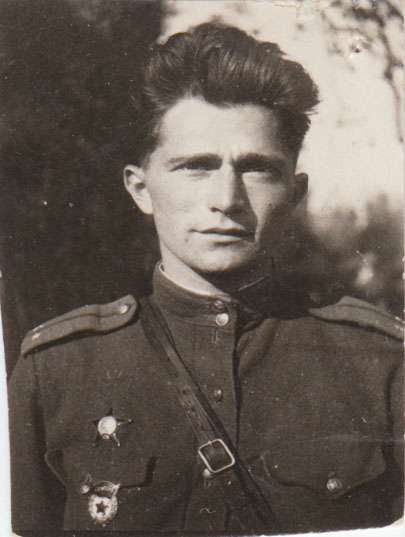Lazar Ulitskii was born in 1923 in the town of Belaia Tserkov, near Kiev, as the fourth and youngest child in the family of a Jewish clerk. His mother died in 1937, and the family moved to Kiev. Lazar graduated from a Ukrainian school and entered the First Medical Institute of Kiev. In April 1941, when he was finishing his first year of studies, on the "advice" of the Komsomol committee of the Institute, Ulitskii volunteered for the Red Army. Immediately after the German attack on the Soviet Union in June 1941, he was sent to the Kharkov Military Medical School. After about six months, in the middle of the year, the school was transferred to Soviet Central Asia. Upon graduating, the young military feldsher Ulitskii was sent to the Kalinin Front (north-west of Moscow) and attached to the 150th Siberian Division. Ulitskii became the commander of a medical company – a unit that provided first medical help, before sending the wounded on to the medical battalion (medsanbat). Since the medical company operated right on the battle field, it was engaged in the most dangerous kind of medical service. During combat operations, about 200 wounded soldiers were aided by his company every day.
Ulitskii was on active service in western Russia and northeastern Belorussia. He recalled the operation in January 1943 for the recapture of Velikiie Luki, a town in Russia near the border of Belorussia, as one of his most difficult experiences: part of his medical staff was either wounded or killed. Ulitskii was awarded the For Battle Merit Medal after this operation.
In April 1944, Ulitskii was sent to study at the Military Medical Academy in Leningrad. That marked the end of his combat experience. After graduating from the Academy in 1949, he was sent to serve as a military doctor to the Soviet Far East. In 1970, he retired and settled in Leningrad.







